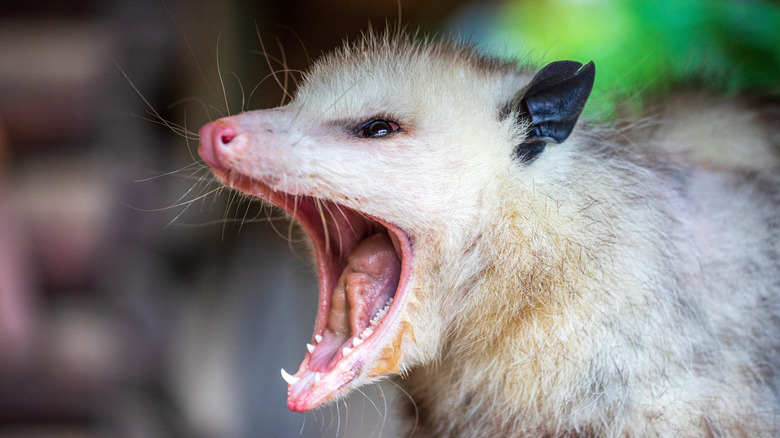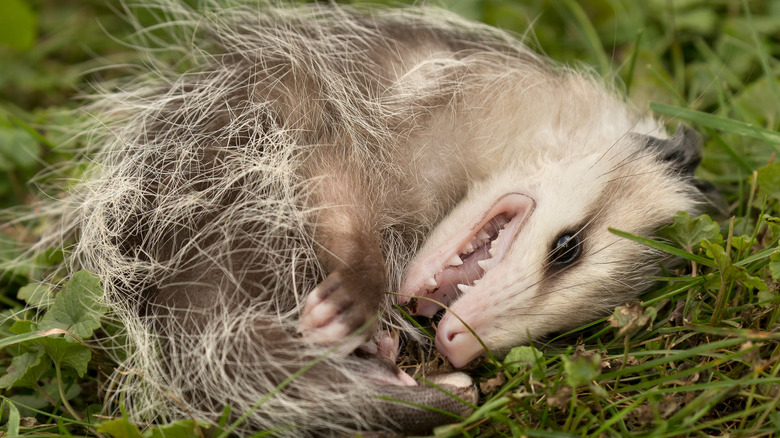If You've Ever Wondered Why Opossums Play Dead, Here's The Answer
Opossums are largely misunderstood. While one of the dangers of opossums is that they carry zoonotic diseases, they are a vital part of the ecosystem, digesting almost anything (even bones) to eliminate environmental pathogens. The adaptability of opossums is also well known, which is why these mammals are found throughout the contiguous United States and parts of Mexico and Canada. One of these adaptations is feigning death, but this phenomenon is not a voluntary act.
You've likely heard of the phrase "playing possum," which just goes to show how notorious opossums are for appearing as if they're dead when a predator is nearby. However, this is a physiological defense called thanatosis (or tonic immobility), and these animals don't have any control over it. It's automatically triggered when they feel as if they have no other way to escape death. And, they actually appear to be dead.
A study published in Acta Physiologica Scandinavica found that, when thanatosis is triggered, opossums' respiratory rates decrease by 30% and heart rates slow by 46% compared to normal. Also, the animals become immobile and stiff in the prone position, their mouths hang open, and they defecate, salivate, and urinate. Despite that, the opossums "playing dead" in the study were fully conscious the whole time, which the researchers identified by their fluctuating vitals.
Thanatosis affects more than just opossums
An animal's instinct to "freeze" or remain still momentarily to protect itself from being seen by a predator is very different from thanatosis. While this remaining motionless is a defensive strategy, it doesn't usually last very long. Tonic immobility, on the other hand, is more of a last-ditch response that can persist for hours at a time. Both are part of the defense cascade, a spectrum of defensive responses (arousal, freezing, fight or flight, tonic immobility, collapsed immobility, and quiescent immobility) to perceived threats common to many animals. Each response has a specific neural pattern that coincides with a descending neural network of connections.
When it comes to thanatosis, opossums aren't the only animals that do it when they're in the face of true danger, it's just the most infamous. In fact, one little-known fact about the walking stick bug is that it can play dead to thwart predators, as can other insects and invertebrates like the pygmy grasshopper, which sticks out its legs in every direction so that frogs can't eat it. The list of death-feigning animals is longer than you think, though: domestic chickens, wild birds, guinea pigs, several rabbit species, and some sharks. Even some snakes, such as the eastern hognose snake (one of the snakes common to Indiana), "play dead."

